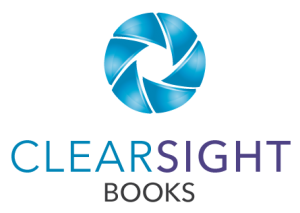 The term “self-publishing” is a misnomer. Most of us lack the capacity—the entire range of necessary skills—to write and publish a book all on our own. Occasionally I come across a book where someone made the attempt, and the end result is almost always amateurish. Not what you want to send out into the world!
The term “self-publishing” is a misnomer. Most of us lack the capacity—the entire range of necessary skills—to write and publish a book all on our own. Occasionally I come across a book where someone made the attempt, and the end result is almost always amateurish. Not what you want to send out into the world!
We can, however, choose strategically which tasks we will do ourselves, and which we should seek help with.
Let’s first look at some of the roles needed to develop and publish a book. Then I’ll offer questions to help you decide where you need support the most.
Who can help you develop your book?
I’m defining book development here as the period where you are writing and editing the manuscript, up to the start of production. This is where you and your book are at your most vulnerable. You must decide how much you want to write yourself, what sort of guidance you want, and who you trust for feedback.
Book coach – The mentor
The title “book coach” can encompass many roles—strategist, facilitator, thinking partner, teacher, critic. In a nutshell, a book coach can educate you about the writing and publishing process, help you develop solid content, and offer editorial feedback during development. (Being a thinking partner and helping people develop their ideas is one of my very favorite things!)
(BTW I recently heard the term “book doula.” A little too, umm, sanguine for me. “Book therapist” may better reflect the trust involved.)
Ghostwriter – The muscle
Some people have ideas they know would make a great book, but they just don’t have the interest, time, and/or talent to sit down and write it. That’s where a ghostwriter comes in—pulling the book content out of your head and getting it on the page for you. Since ghostwriting consumes a great deal of time, this is probably the most expensive avenue to completing your manuscript.
Editor – The doctor
There are many different types of editors, but they boil down to what I sometimes call “big” editing and “small” editing. Developmental or substantive editors are looking at the macro picture: Does the book structure work? Are there gaps in content? Does the narrative flow properly throughout the book? Are there errors in content? (I also love substantive editing—I want to make your ideas shine!)
Line editors and copyeditors are looking at the micro picture: Does the language flow at a sentence and paragraph level? Is the tone consistent? Are word choices appropriate? Is the writing technically correct, e.g., grammar, punctuation, usage?
You may need to have an editor look at your manuscript to determine what level of editing it needs. If you hire a professional for only one task, this is the one!
Beta readers – The constructive critics
Beta readers offer feedback on an early draft—that is, when you are still open to making changes. These are often volunteer readers from your target audience.
Writing group/writing partner – The nurturer(s)
Many people could not complete their book without the moral support they get from a writing group or writing partner. Sometimes you need encouragement to just. keep. going.
Who can help you publish your book?
Once your manuscript is complete and edited, it’s time to move into the nitty gritty of publishing, meaning the actual book production process.
Cover designer
Cover design is probably trickier—and more important—than you think. Unless you’re a graphic designer yourself, I recommend using an experienced cover designer.
Interior formatter
Standards do exist for the design of book interiors. If you don’t follow standards for page numbers, margins, fonts, line spacing, and the like, readers may not know exactly what’s wrong, but they’ll know something’s off—and it may put them off your book. If you’re detail-oriented and proficient with Word, InDesign, or similar tools, you can learn to do this, but it can be time-consuming.
Graphic designer
If you have diagrams or illustrations in your book, you may need a graphic designer. It could be the same person as your cover designer or interior formatter.
Proofreader
A proofreader looks for the very last little typos and mistakes. Editors catch a lot of these items, but fresh eyes are needed for a final pass (or three), including looking at formatting items such as page numbers and headings. It’s hard to spot mistakes in a manuscript that’s become familiar, so always get help with this task.
Ebook converter
To publish your book on Kindle or other ebook readers, you’ll need to convert the interior file into a format such as .epub or .mobi. Often your interior formatter can make this conversion for you. If you’re detail-oriented and a bit tech-savvy, you can learn to do this, but anticipate some frustration the first time around.
PR/marketer
Depending on your goals for your book and how you plan to integrate it with your business strategy, you may want help from someone who specializes in book marketing and PR. Or, you may decide to wrap your book marketing into your existing marketing processes.
Project manager
Publishing entails many roles to manage and tasks to coordinate. As the author, you may want to maintain control, but you may also want an experienced project manager to keep track of all the moving pieces for you.
How to decide what support you need
Most of us are not experts at all the requisite writing and publishing roles—nor should we be. As a point of reference, I do my own writing, but I wouldn’t think of publishing something significant without an editor. I used to publish blog posts without a net, which was fine for something relatively short (and easily correctable). Now I have one of my editors review every post—and the articles are better for it.
To decide what level of support you want and need, consider the following questions:
- What is your brand promise? What is the corresponding quality you want for your book?
- How skilled are you as a writer? Do you like to write? What’s your level of confidence in completing a book-length work?
- How skilled are you at each publishing role? How much do you like to perform each task? Do you like to spend time figuring things out for yourself? Or do you prefer an expert to count on?
- How much time do you have available? What is your time worth? What is the opportunity cost if you do a task yourself?
- How much do you want to invest? (Note: Most of my clients write books as part of their business strategy, so their business helps fund the project; the calculus may be different if you’re writing memoir or fiction.)
Your guiding question is always What is your best and highest use? In my experience, for most people it’s the development of their own unique content. For you, that might look like sitting down to write it yourself, working with a book coach to flesh out your concepts, or talking through your content with a ghostwriter.
Once you have the core—the essence—of your book, there are plenty of people to help you in executing other roles. Don’t be afraid to ask for support.
If you aren’t sure what kind of support you need, get in touch and we’ll set up a discovery session to talk through your challenges and possible paths forward. It’s complimentary, there’s no obligation, and my goal is always to find the best solution for you.

